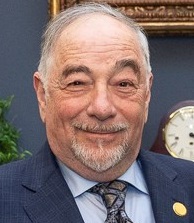A Quote by Brigette Lundy-Paine
Most people think that it would be hard to be on a set or act for people with autism. But when you think about it, most people with autism use a script in their daily life to communicate in social situations, like at a restaurant, or you know, with a day-to-day conversation.
Related Quotes
I think that if I could do any sort of research of autism that I wanted to do, at this point I would take a sample of classic, early infantile autism persons and compare them with what I call "classic late onset autism", individuals. I think we will find that the cause of those youngsters with autism who have autism from birth is probably different than those who have late onset autism.
I think one of the problems with the definition of autism is we keep expanding it. It started as "early infantile autism", and then it became "autism", and now it's "autism spectrum disorder". I'm not opposed to that from the standpoint of trying to broaden our vistas, and so forth. But from a research point of view, the term autism is lost in specificity.
What do we know about autism in 2013? Autism symptoms generally emerge before age three and usually much earlier, often as language delays or lack of social engagement. Recent research suggests that autism can be detected during the first year of life, even before classic symptoms emerge. Indeed, the symptoms may be a late stage of autism.
In an ideal world the scientist should find a method to prevent the most severe forms of autism but allow the milder forms to survive. After all, the really social people did not invent the first stone spear. It was probably invented by an Aspie who chipped away at rocks while the other people socialized around the campfire. Without autism traits we might still be living in caves.
Our awareness of time affects how we think and act. This is illustrated by the story about the clock in a restaurant window. It "had stopped a few minutes past noon. One day a friend asked the owner if he knew the clock was not running. 'Yes,' replied the restaurant man, 'but you would be surprised to know how many people look at that clock, think they are hungry, and come in to get something to eat."' If only there were some kind of divine timepiece that would arouse a spiritual hunger in people!
I'll tell you what autism is. In 99 percent of the cases, it's a brat who hasn't been told to cut the act out. That's what autism is. What do you mean they scream and they're silent? They don't have a father around to tell them, 'Don't act like a moron. You'll get nowhere in life. Stop acting like a putz. Straighten up. Act like a man. Don't sit there crying and screaming, idiot.'
What I'm trying to do is help people understand if for one day they could have the best day ever, where there energy and there focus and everything is super clear and they feel like a great golden god... if you do that one time you know you're capable of it and you can start working towards that. Most people I know have felt like crap without knowing it most of their life. They've never had a wonderful day. Once you have that day, you can learn how to kick more ass repeatedly.
She was afraid to suggest to him that to most people, nothing "happens." That most people merely live from day to day until they die. That, after he had been dead a year, doubtless fewer than five people would think of him oftener than once a year. That there might even come a year when no one on earth would think of him at all.
I have a fairly strict definition of early infantile autism. That is not to say that people who don't meet that classic description don't have autism, but we might do well to narrow our definitions, and our samples, down to groups that are very similar, because I think you're more likely to find the cause.































